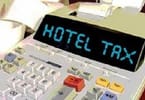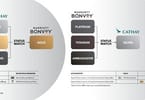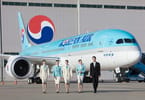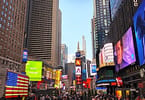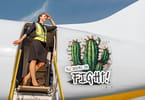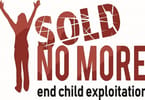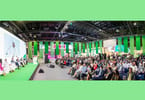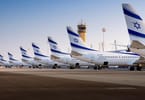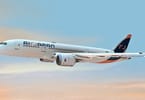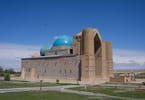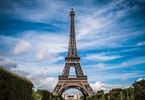The three largest US carriers – United airlines, Delta Air Lines, and American Airlines – have added a US$10 surcharge to fares on the weekends after the US Thanksgiving and New Year’s holidays.
The fees apply to a “vast majority” of tickets for November 29 and January 2 and 3, Graeme Wallace of travel-research firm FareCompare.com said today in an email. They aren’t retroactive, according to American, which moved first to impose the fees. US Airways Group Inc. also matched the surcharge.
“Passengers already pay more to fly on certain days,” Wallace said. Airlines “have now upped the ante by determining that certain peak travel days are worth an additional passenger-paid premium.”
The surcharge differs from fees imposed for services such as checking bags, because it isn’t optional, said Jay Sorensen, president of consultant IdeaWorks and a former airline marketing executive. A surcharge is easier for US carriers to adopt than a fare increase when only a few dates are involved.
Airlines are under pressure to find additional revenue as the recession crimps business travel and spurs fare discounts to help attract leisure passengers. The US industry has raised prices three times in 2009, after 15 increases in 2008 and 17 a year earlier, according to Dallas-based FareCompare.com.
“Last year, procrastinators were rewarded with lower fares during the holiday period, but I do not expect that to happen this year,” said Rick Seaney, FareCompare’s chief executive officer.
Continental Airlines Inc., the fourth-largest US carrier, hadn’t matched the increase, said Julie King, a spokeswoman. Atlanta-based Delta is the world’s biggest airline, followed by American and Chicago-based United. Discounter Southwest Airlines Co. is the fifth-largest carrier, and typically doesn’t follow industry fare moves. Tempe, Arizona-based US Airways is no. 6.
Ticket surcharges have previously been applied to events such as Super Bowls. Targeting seasonal high-demand dates is “an entirely new fee-setting opportunity,” Wallace said.
“Holiday periods are always times of peaks and valleys in demand,” said Tim Smith, the spokesman for Fort Worth, Texas-based American.
The risk in the surcharge is backlash from consumers already saddled with the fees imposed in the past year, said Sorensen, who is based in Shorewood, Wisconsin, and previously ran Midwest Airlines’ frequent-flier program.
An extra charge on some of the busiest travel days of the year “is only going to give critics of airline pricing more gunpowder to fire shots at the industry,” Sorensen said in an interview. “If you want to charge more in a holiday fare, just increase your fares. Why call attention to yourself?”
WHAT TO TAKE AWAY FROM THIS ARTICLE:
- An extra charge on some of the busiest travel days of the year “is only going to give critics of airline pricing more gunpowder to fire shots at the industry,” Sorensen said in an interview.
- The risk in the surcharge is backlash from consumers already saddled with the fees imposed in the past year, said Sorensen, who is based in Shorewood, Wisconsin, and previously ran Midwest Airlines' frequent-flier program.
- A surcharge is easier for US carriers to adopt than a fare increase when only a few dates are involved.





